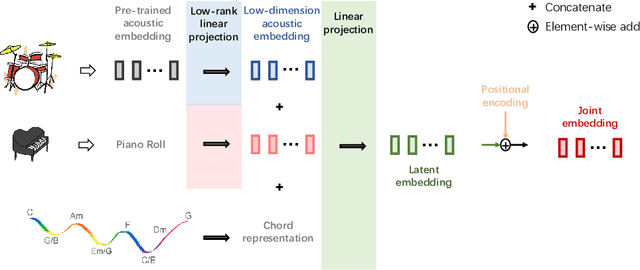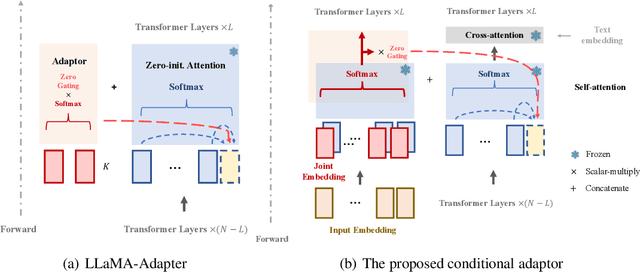Content-based Controls For Music Large Language Modeling
Paper and Code
Oct 26, 2023



Recent years have witnessed a rapid growth of large-scale language models in the domain of music audio. Such models enable end-to-end generation of higher-quality music, and some allow conditioned generation using text descriptions. However, the control power of text controls on music is intrinsically limited, as they can only describe music indirectly through meta-data (such as singers and instruments) or high-level representations (such as genre and emotion). We aim to further equip the models with direct and content-based controls on innate music languages such as pitch, chords and drum track. To this end, we contribute Coco-Mulla, a content-based control method for music large language modeling. It uses a parameter-efficient fine-tuning (PEFT) method tailored for Transformer-based audio models. Experiments show that our approach achieved high-quality music generation with low-resource semi-supervised learning, tuning with less than 4% parameters compared to the original model and training on a small dataset with fewer than 300 songs. Moreover, our approach enables effective content-based controls, and we illustrate the control power via chords and rhythms, two of the most salient features of music audio. Furthermore, we show that by combining content-based controls and text descriptions, our system achieves flexible music variation generation and style transfer. Our source codes and demos are available online.
 Add to Chrome
Add to Chrome Add to Firefox
Add to Firefox Add to Edge
Add to Edge